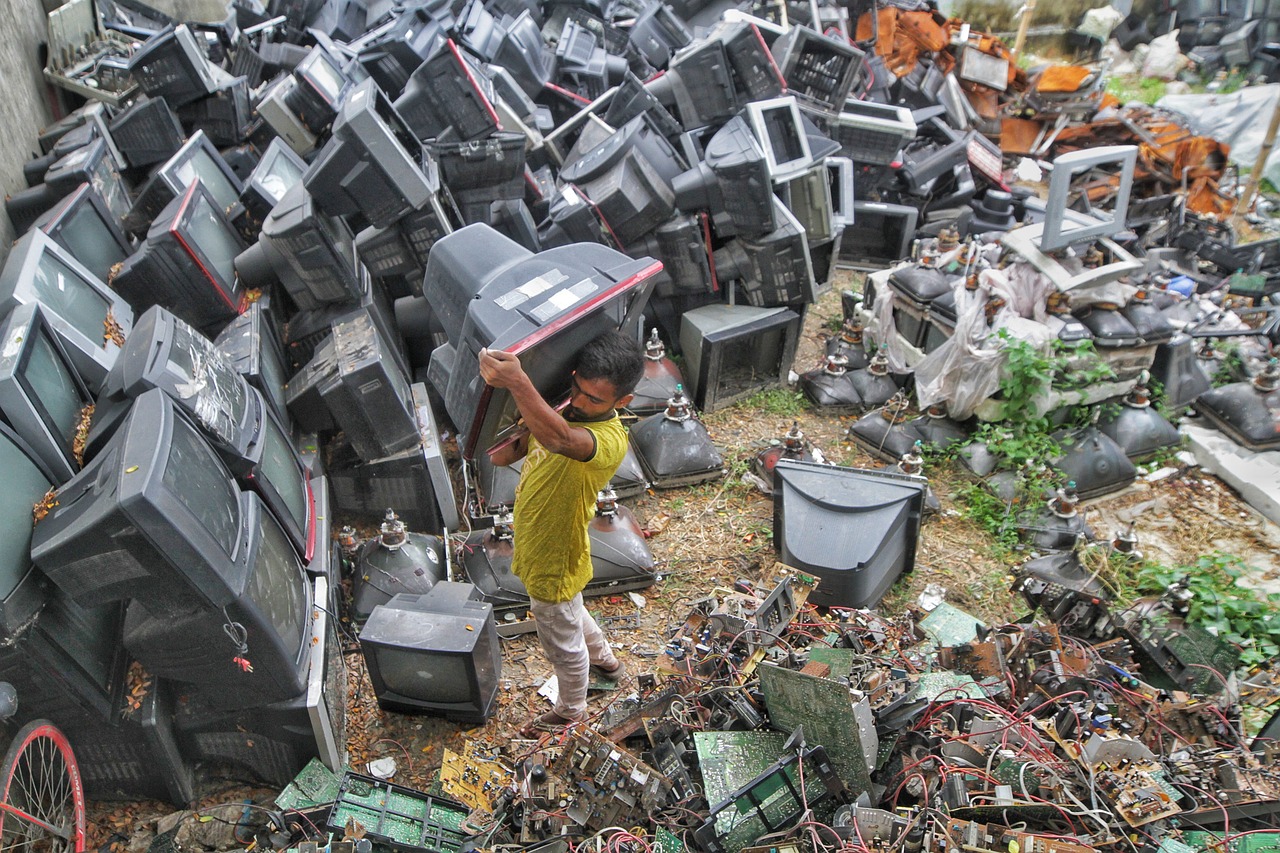
 By Kaushal Kishore*
By Kaushal Kishore*
At a critical juncture when some of the finest women in Europe and America have launched the Birth Strike Movement against climate change, the NGT (National Green Tribunal) is trying hard to ensure waste disposal in different Indian states. The NGT panel headed by Justice Adarsh Kumar Goyal directed the Bihar government to deposit a sum of Rs 4,000 crore in the ring-fenced account for liquid and solid waste disposal, followed by a similar decision in a case pertaining to Uttarakhand. Last year, it was the government of Maharashtra which was asked to deposit Rs 12,000 crore in the ring-fenced banking system.
In the first week of May 2023, the NGT issued directives to the Bihar government and in the second, asked the Uttarakhand government to deposit Rs 200 crore for the same set of objectives. Meanwhile, BUIDCO (Bihar Urban Infrastructure Development Corporation Limited) issued a clarification on it, and it’s not limited to grabbing public attention to improve the state of affairs. In fact, it intends to rectify the notion that the allocation of the funds to a ring-fenced account is not any kind of penalty. In this case, the consent of the bureaucracy is apparent since the top officer of the executive is entitled to control funds for waste disposal. But still, media reports referred to it as a penalty. The NGT directives are further explained in this clarification of BUIDCO, defining punishment versus cooperation battle in addition to presenting the status of the improving situation in the state.
The Supreme Court in 2014 and in 2017 directed the tribunal to monitor how the states manage their waste. The three officers of the Bihar government, including Chief Secretary Amir Subhani, Secretary of Urban Development and Housing Department, Arunish Chawala, and Managing Director of BUIDCO Dharmendra Singh took part in proceedings related to the State. Moreover, the chief secretary is authorised to deal with the funds for waste disposal schemes. The NGT helped them separate a minimum amount required to ensure proper management of solid or liquid waste. Now, the development of the sewer line will be faster than ever before. Not only the elected body of the municipality, but the state government too are out of the picture. Here, the executive has achieved the success that had been desired for a long time.
No matter whether it’s solid or liquid waste, the responsibility falls on the bureaucracy. It reminds the pain of the minister in Uttar Pradesh who used to be at the mercy of Babus of Jal Nigam in order to get his official car refuelled. As such, it’s not a penalty in the true sense of the term. It can remind us of the transfer of a public servant that’s sometimes treated as a kind of punishment. In the history of Indian democracy, this is one of the monumental embarrassments to the elected leaders. The elected governments have been gasping for breath while facing the Executive and Judiciary combined. Rifts among political rivals have turned into the deep chasm that is reflected in the new ordinance overturning the verdict of the apex court in the case of the Delhi government. It is surprising that the achievement of bureaucracy is being noticed as a kind of punishment.
Uttarakhand soon agreed to deposit the money in a separate account for this purpose. The Maharashtra government has deposited Rs 12,000 crore for the same set of objectives. Every state is being noticed. The process is continuing. It seems the NGT has been committed to following the spirit of the ‘Clean India Mission’. Better works are being noticed and appreciated in its verdicts. In addition to Sikkim, Surat and Indore, Suryapet in Telangana and Namakkal in Tamil Nadu are also included in this list.
In a recent decision pertaining to Bihar, the panel headed by Justice Goyal referred to Namakkal and Suryapet to justify its decision. The poultry town of Namakkal is known to produce six out of every 10 CNG tanks used in the country. The population of 50,000 people is in the news because of its efficient waste management without the help of the state and the Centre. The streets are being constructed with bricks made of plastic waste in Suryapet.
This is the up-cycling of plastic waste. The displacement of any stuff, in the absence of an up-cycling system, creates garbage. Solid and liquid waste disposal works done by these towns of South India are a commendable use of technology. The NGT seems to promote this model of waste management. The outcome of it is certainly effective to an extent, but it does not remove the fundamental cause behind the crisis and only purports to address the bone of contention.
The think tanks associated with the SSDF (Shristi Sustainable Development Foundation) have endorsed one of the entrepreneurs of ‘Prayas’, SR Agarwal. He has introduced us to the tools and technologies to settle the industrial and domestic waste crisis with the guarantee of almost zero soil pollution. Instead of carrying waste, he has focused on its treatment near the place of generation.
No more sewer lines to pollute Mother Earth is a dream that’s no longer impossible to realise. The waste-to-energy model is a part of this gesture that others are trying to introduce on a large scale. SSDF President CA Sukhvinder Singh has compared the political economy of the oil and automobile sectors that are shifting towards hydrogen cells and electric cars. He has projected a similar shift in the future in the case of sewer lines and treatment plants.
Modern civilisation, based on technology, has imposed a complicated system in the name of a complex and self-sustainable system that developed sewer lines and treatment plants. But the pollution of Mother Earth, the perennial rivers and the holy ocean is increasing. We have continued to take oaths and make a promise in the name of purity of the Ganga and the holy rivers and streams turned into sewer lines.
It happened while the business of sewage treatment plants (STPs) flourished, hurting the sentiments of her offspring. Raising slogans of nationalism and worshipping the statue of Bharat Mata make no sense as long as her dignity has not been restored.
British pop star Blythe Pepino, known for her polyamorous relations, beats the activists of the Extinction Rebellion group while standing with the birth strikers. A few hundred activists are now lobbying in the United Kingdom in addition to a few thousand in America. At the same time, there are many people raising questions dismissing the links between climate change and population growth. Moreover, some of them consider it only a campaign to save the handful of people actually responsible for the crisis.
The stakeholders of democracy claiming to have gripped the pulse of people need to think about the shrinking grounds. Villages and streets across India need to have their own customised model for the disposal of waste.
The idea of cooperatives combined with the available technology can prove to be meaningful in this case. Awakening public power is required to ensure it. The public representatives can retain their significance in case they raise the public power to that effect. In that case, the offspring of Mother Earth can also sustain longer. Not only NGT Chairman Justice Goyal but the Union Cooperative Minister Amit Shah and others can also contribute significantly to achieving the objectives.
*Author of The Holy Ganga (Rupa 2008) and Honourary Secretary, Srishti Sustainable Development Foundation.






Mind-blowing article. Very useful. Circulating